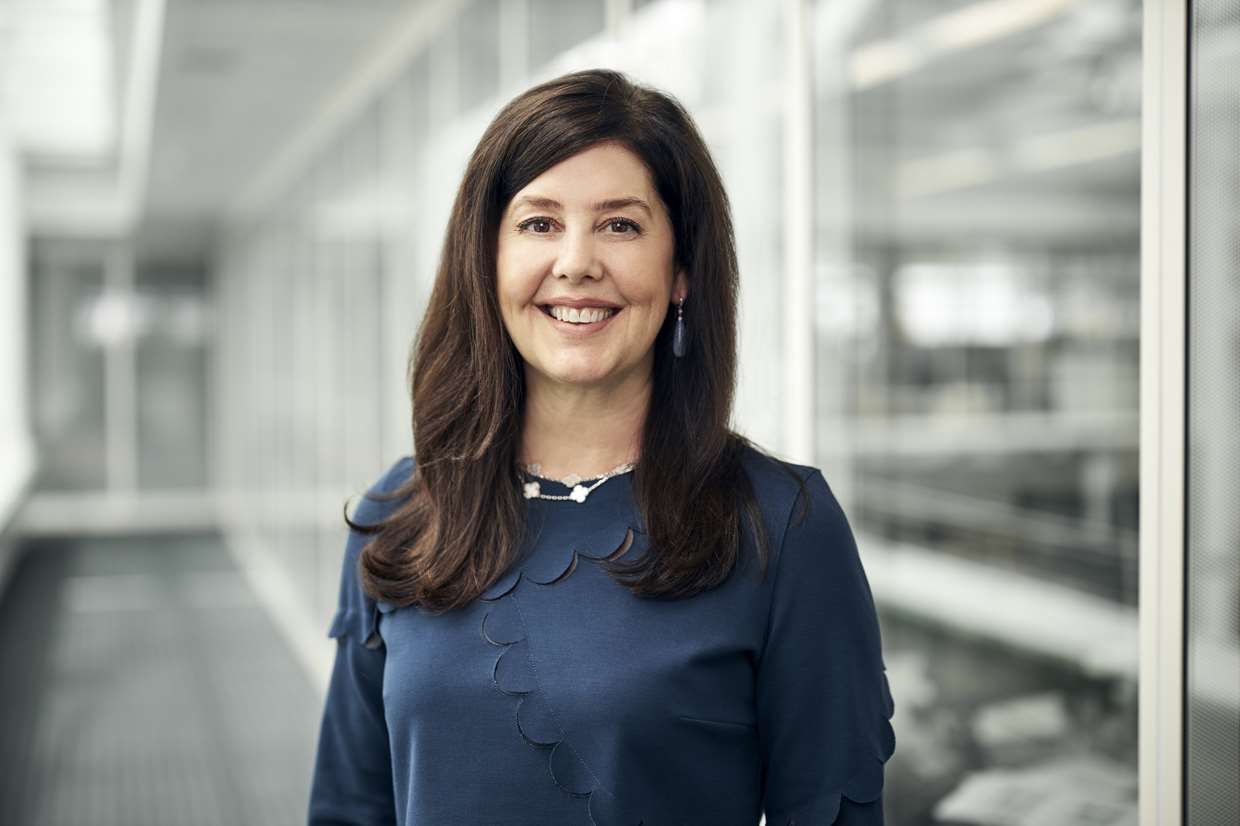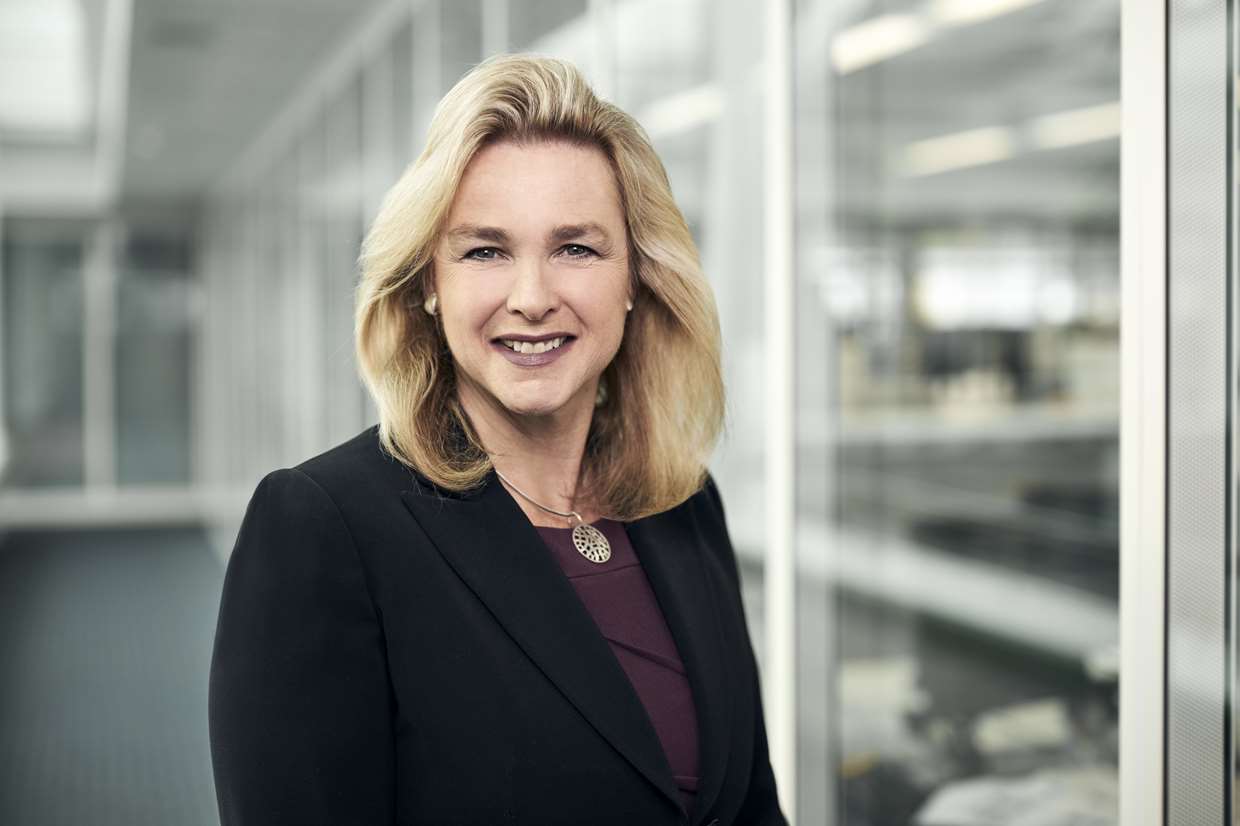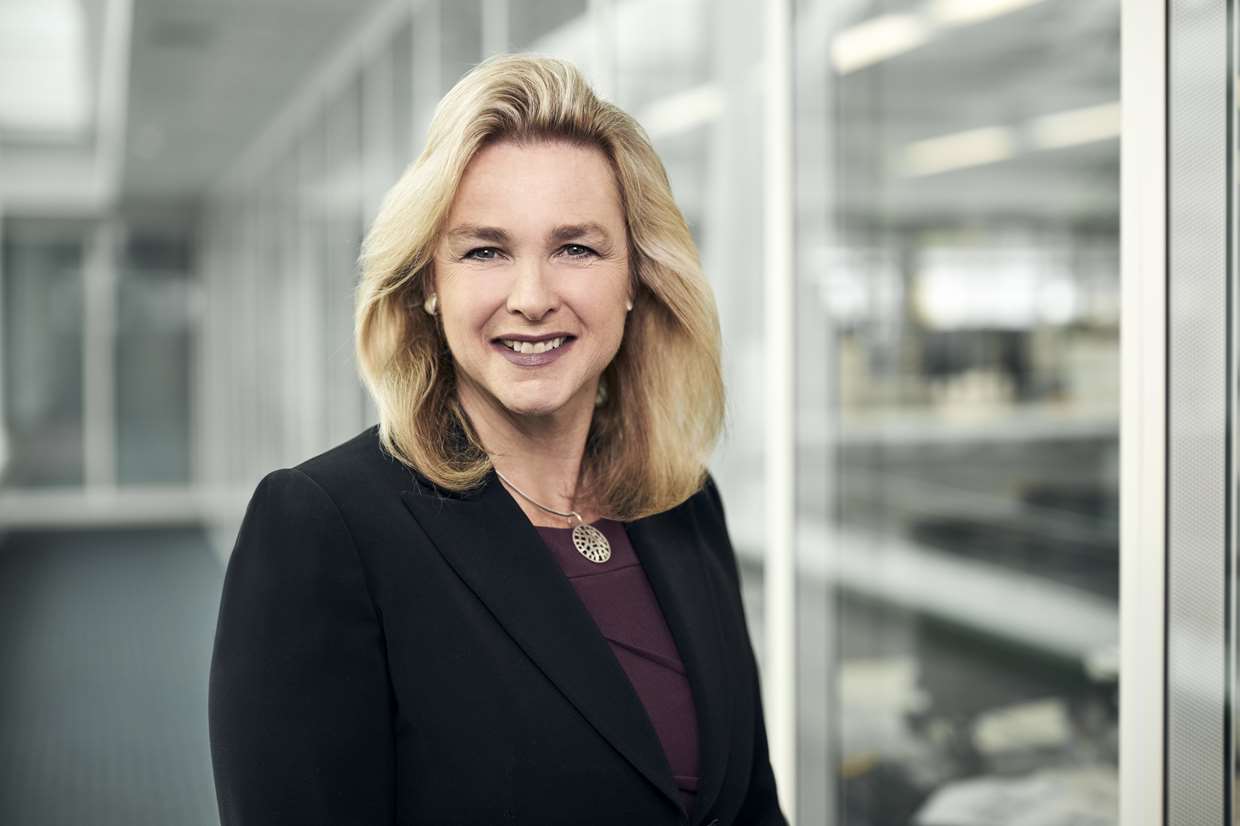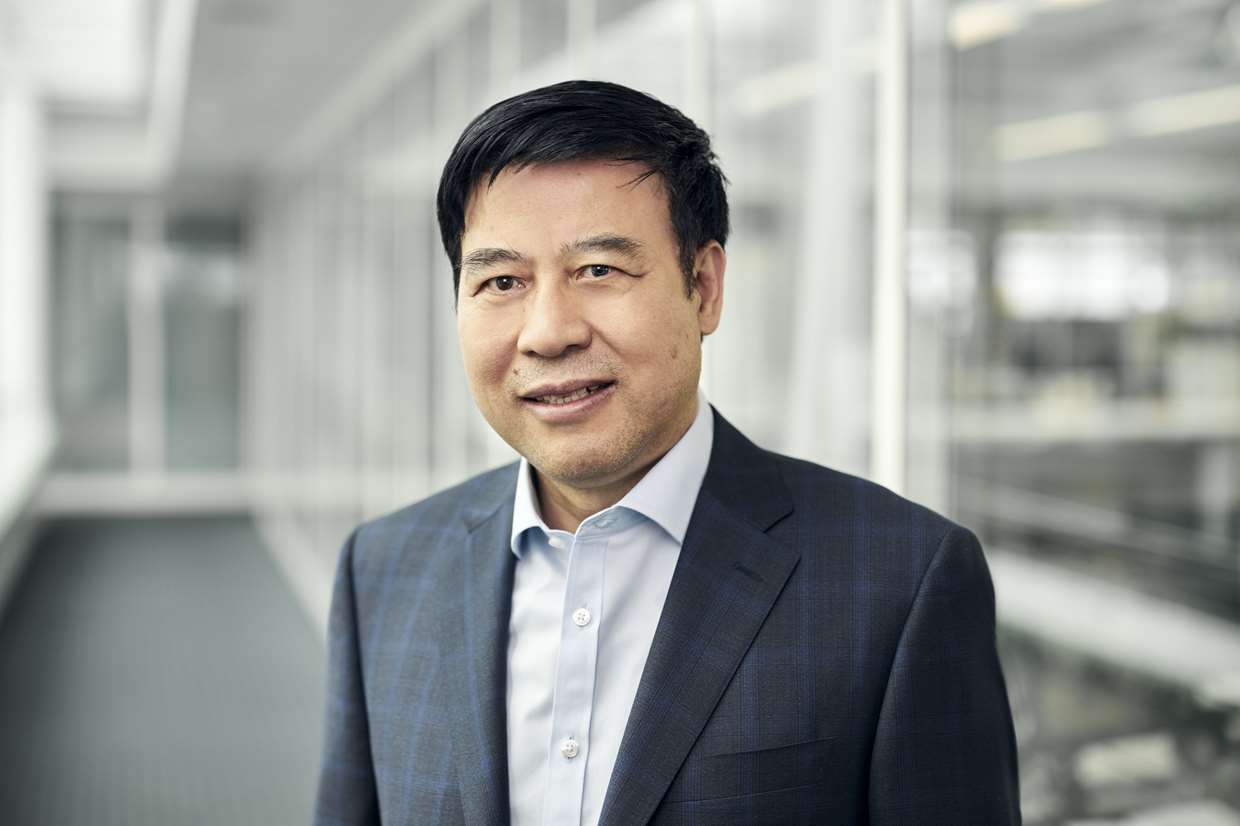Board of Directors
Introduction
The Board of Directors of Sonova Holding AG sets the overall direction and supervision of the management (see Art. 716a para. 1 of the Swiss Code of Obligations). Its working methods are reflected in the Organizational Regulations (available here) and the Board Committee Charters (available here for the Audit Committee and here for the Nomination and Compensation Committee).
As determined in Art. 1 of the Organizational Regulations, the Board of Directors plans the succession of its members and defines the criteria for selecting candidates so that the composition is well-balanced in terms of size, professional skills, international experience, and diversity. Sonova ensures that newly elected members receive appropriate introduction and orientation and that the members of the Board of Directors receive continuing training with respect to their responsibilities.
Board of Directors independence
Members of the Board of Directors are considered to be independent, according to Art. 14 of the Swiss Code of Best Practice for Corporate Governance and Art. 6 lit. c of the Organizational Regulations, if they personally or in association with related persons have not been a member of the Management Board during the last three years, and have no or only comparatively minor business relations with the company. According to these rules all members of Sonovaʼs Board of Directors are considered to be independent.
Board of Directors fees
Fees for members of the Board of Directors are structured to be consistent with the principle of independence; members therefore only receive fixed fees paid in the form of a cash retainer and non-discounted shares with a blocking period of five years and four months (Chair of the Board of Directors) or four years and four months (all other members of the Board of Directors). The allocation of shares strengthens alignment with shareholdersʼ interests. In addition, members of the Board of Directors receive committee retainers for their services on Sonovaʼs committees. Members of the Board of Directors do not receive performance-related compensation, severance payments, or benefits.
Executive management positions
No member of the Board of Directors holds an executive management position with Sonova Holding AG or any of its subsidiaries.
Business connections of Board members with Sonova Holding AG or its subsidiaries
In the 2021/22 financial year, there were no business connections between individual members of the Board of Directors, including companies or organizations represented by them, and Sonova Holding AG or its subsidiaries.
Other activities and vested interests
Except as disclosed in the biographies of the members of the Board of Directors, no member of the Board of Directors holds any position in a governing or supervisory body of any important private or public sector organization, institution, or foundation; none holds any permanent management or consultancy position with an important interest group, or any public or political office.
Mandates outside Sonova Holding AG
No member of the Board of Directors may hold more than four additional mandates in listed companies and in total no more than six additional mandates. The following mandates are not subject to these limitations:
- Mandates in companies which are controlled by Sonova or in companies which control Sonova;
- Up to ten mandates held at the request of Sonova or companies controlled by Sonova; and
- Up to six mandates in associations, charitable organizations, foundations, trusts, and employee welfare foundations.
For further details please see Art. 30 of the Articles of Association, available here.
Board of Directors competence and evaluation
The Nomination and Compensation Committee and the Board of Directors evaluate current and prospective members of the Board according to a skills and experience competency matrix to ensure that an appropriate mix of relevant skills and experience is represented in the Board of Directors. The matrix includes criteria relating to executive management expertise, board experience, relevant industry know-how, strategic thinking (including M&A), international/regional experience, technology/product development experience (hardware and software), digital expertise, IT expertise, Supply Chain Management expertise, financial expertise, sales/marketing expertise, retail and service expertise, HR expertise, and expertise in ESG. By following the matrix criteria in the nomination and evaluation processes, the Nomination and Compensation Committee and the Board of Directors are committed to consider characteristics including but not limited to, gender, age, nationalities or country of origin, ethnicity, cultural background, ways of believing and mindsets, in order to establish balance in terms of diversity and inclusion.
The Nomination and Compensation Committee and the Board of Directors make use of this information to identify potential gaps, and to help create profiles for new director searches.
The Board of Directors also conducts an annual self-assessment to:
- Ensure and enhance its comprehensive understanding of the business and the company;
- Evaluate the work of the Board of Directors, its committees, the individual board members and the Chair;
- Make the best use of the human capital represented on the Board of Directors; and
- Optimize efficiency, effectiveness of working methods, and cooperation among members of the Board of Directors and members of the Management Board.
The Chair of the Board of Directors initiates the annual Board of Directors self-assessment by distributing an evaluation questionnaire, previously approved by the Board of Directors. The Chair of the Board of Directors is responsible for collecting the assessments and for initiating the review of the consolidated results by the Nomination and Compensation Committee and subsequently the full Board of Directors.
Composition of the Board of Directors
As of March 31, 2022, the composition of the Board of Directors is as follows:
Elections, terms of office and biographies
Election procedure and limits on the terms of office
Art. 16 para. 1 of the Articles of Association of Sonova Holding AG states that the Board of Directors must consist of a minimum of three and a maximum of nine members. The members of the Board of Directors are elected by the shareholders at the General Shareholdersʼ Meeting (Art. 10 no. 2 of the Articles of Association, available here).
Re-elections for successive terms are possible. Members of the Board of Directors shall retire automatically at the first General Shareholdersʼ Meeting following their seventieth birthday. In justified individual cases, the Board of Directors may make an exemption. For further details please see Art. 16 of the Articles of Association, available here, and Art. 6 of the Organizational Regulations, available here.
First election and remaining term of office
The following table shows the date of first election for each member of the Board of Directors. The Articles of Association require that the term of office of a Board member ends after completion of the next Annual General Shareholdersʼ Meeting. As a consequence, each Board member will have to be re-elected annually at the General Shareholdersʼ Meeting. All previous Board members were re-elected by the 2021 Annual General Shareholdersʼ Meeting except Beat Hess (Vice Chair) who reached Sonova’s age limit for Board membership, and Michael Jacobi, who served as a member of the Board of Directors since 2003 and did not stand for re-election (the Articles of Association are available here). Gregory Behar and Roland Diggelmann were elected to the Board of Directors for the first time at the 2021 AGM.
Robert F. Spoerry
(born 1955, Swiss citizen) has been Chair of the Board of Directors of Sonova Holding AG since March 30, 2011, and a non-executive member of the Board of Directors since 2003.
Robert F. Spoerry is also the non-executive Chair of the Board of Directors of Mettler Toledo International Inc., a leading global manufacturer and marketer of precision instruments and related services for use in laboratory, manufacturing, and food retailing applications. He joined Mettler Toledo in 1983 and was CEO from 1993 to 2007. He led the buyout of Mettler-Toledo from Ciba-Geigy in 1996, and the companyʼs subsequent Initial Public Offering on the New York Stock Exchange (NYSE) in 1997. In 1998, he was nominated as Chair of the Board of Directors.
His long-standing experience in the technology sector, his deep knowledge of Sonova and his strong technical background with innovation-driven companies provides a substantial benefit to the Group and its shareholders. Robert F. Spoerry devotes a substantial amount of his time to his service as Chair of the Board of Directors.
Robert F. Spoerry graduated in mechanical engineering from the Swiss Federal Institute of Technology (ETH) in Zurich, Switzerland, and holds an MBA from the University of Chicago.
Outside mandates:
- Member of the Board of Directors of Bystronic Holding AG (former Conzzeta Holding AG)
- Non-executive Chair of the Board of Directors of Mettler Toledo International Inc.
Stacy Enxing Seng
(born 1964, US citizen) has been a non-executive member of the Board of Directors since 2014 and serves on the Nomination and Compensation Committee. She became Vice Chair of the Board of Directors at the Annual General Shareholders’ Meeting in June 2021.
She previously served as President of Covidienʼs Vascular Therapies division. Stacy Enxing Seng joined Covidien in July 2010 through its acquisition of ev3 where she was a founding member and executive officer responsible for leading ev3’s Peripheral Vascular Division from inception. She has also held various positions at Boston Scientific, SCIMED Life Systems Inc., Baxter Healthcare, and American Hospital Supply.
With her broad experience in the medical technology sector and her strong track record in growing startups and leading multinational companies, she brings further important perspectives to the Group. Her expertise in working with regulatory agencies around the globe brings valuable insight to the Board of Directors.
Stacy Enxing Seng received a Master of Business Administration from Harvard University and has a Bachelor of Arts in Public Policy from Michigan State University.
Outside mandates:
- Member of the Board of Directors of LivaNova, Inc.
- Operating Partner, Lightstone Ventures
- Independent non-executive Director, Corza Medical
Lynn Dorsey Bleil
(born in 1963, US citizen) has been a non-executive member of the Board of Directors since 2016. She serves on the Audit Committee.
She retired as Senior Partner (Director) from McKinsey & Company in the US in 2013 after more than 25 years of advising senior management and boards of leading healthcare companies on corporate and business unit strategy, mergers and acquisitions, and public policy across all segments of the healthcare value chain. She was also a member of the Board of Directors of Auspex Pharmaceuticals until its sale to Teva in March 2015, and DST Systems until its sale to SS&C in April 2018.
With her extensive experience in advising North American healthcare companies across the entire value chain and through her various board mandates in this sector, she brings very valuable strategic perspectives to the Group and contributes her broad knowhow as a Board member.
Lynn Dorsey Bleil holds a Bachelorʼs degree in Chemical Engineering from Princeton University and a Masterʼs degree in Business Administration from the Stanford University Graduate School of Business.
Outside mandates:
- Member of the Board of Directors of Alcon Inc.
- Member of the Board of Directors of Stericycle, Inc.
- Member of the Board of Directors of Amicus Therapeutics, Inc.
- Vice Chair of the Governing Board of Intermountain Healthcare Park City Hospital
Gregory (Greg) Behar
(born in 1969, Swiss citizen) has been a non-executive member of the Board of Directors since 2021.
He has been the CEO of Nestlé Health Science, a global leader in the science of nutrition, since 2014 and a member of the Nestlé Executive Board since 2017. From 2011 to 2014, he was President & CEO of Boehringer Ingelheim Pharmaceuticals Inc. (USA). Prior to that, he held various leadership positions with Boehringer Ingelheim GmbH (Germany), Novartis AG, and Nestlé SA.
Besides this and on behalf of his employer, Nestlé Health Science, he holds a board seat at Seres Therapeutics Inc. which is a strategic investment of Nestlé. This is therefore not considered to be an additional external mandate since managing the strategic collaboration with this investment – such as joint product development, license agreements etc. – forms part of Greg Behar’s day-to-day activities as the responsible executive at Nestlé.
With his broad international business and executive experience in the healthcare industry as well as his strong track record in leading successful global businesses, Greg Behar brings valuable insight to the Board of Directors.
Greg Behar earned an MBA from INSEAD, France, a Master of Science in mechanical engineering and manufacturing from EPFL Lausanne, Switzerland, and a Bachelor of Science in mechanical engineering from the University of California in Los Angeles, USA.
Outside mandates:
- CEO of Nestlé Health Science
- Member of the Board of Directors of Seres Therapeutics, Inc. (mandate held at the direction of Nestlé as part of his role as CEO of Nestlé Health Science and thus, shall not be considered as an additional external mandate)
Lukas Braunschweiler
(born 1956, Swiss citizen) was the CEO of the Sonova Group from November 2011 until March 31, 2018 and has been a non-executive member of the Board of Directors since 2018 and serves as member and chair on the Nomination and Compensation Committee.
Before joining the company, Lukas Braunschweiler was CEO of the Swiss technology group RUAG. From 2002 to 2009, as President and CEO, he headed the Dionex Corporation. The California-based company, active in the life sciences industry, was listed on the Nasdaq stock exchange. Previously, from 1995 to 2002, he held various group executive positions in Switzerland and the US for Mettler Toledo, a precision instruments manufacturer.
Lukas Braunschweiler brings broad CEO experience from a variety of tech-oriented companies and industries in an international environment. Having served as CEO of Sonova from 2011 to 2018, he has not only a comprehensive knowledge of Sonova as a company and its business but also a broad experience in the global hearing aid industry.
Lukas Braunschweiler received a Master of Science in analytical chemistry (1982) and was awarded a Ph.D. in physical chemistry (1985) from the Swiss Federal Institute of Technology (ETH) in Zurich.
Outside mandates:
- Chair of the Board of Directors of Tecan Group AG
- Member of the Board of Directors of private, non-listed BURU Holding AG
- President of Swiss Management Association SMG
Roland Diggelmann
(born in 1967, Swiss citizen) has been a non-executive member of the Board of Directors since 2021and serves on the Nomination and Compensation Committee.
From 2019 until March 31, 2022, he has been CEO of Smith & Nephew plc, a UK-based leading global medical technology company active in orthopedics, sports medicine, and advanced wound management. From 2008 to 2018 he was managing director for the Asia/Pacific region and later CEO of Roche Diagnostics. He previously held senior management positions in sales and marketing as well as strategic planning at Zimmer Holdings and Sulzer Medica (later known as Centerpulse).
With more than 20 years of executive experience in the medical device industry across many parts of the world and as an active CEO, Roland Diggelmann provides valuable input to the implementation of Sonova’s strategy.
Roland Diggelmann studied Business Administration at the University of Bern, Switzerland.
Outside mandates:
- CEO of Smith & Nephew plc (until March 31, 2022)
- Member of the Board of Directors of HeartForce AG
Ronald van der Vis
(born 1967, Dutch citizen) has been a non-executive member of the Board of Directors since 2009 and Chair of the Audit Committee since 2019.
Ronald van der Vis was Executive Director of the Board and Group CEO of Esprit Holdings Limited, a global fashion and lifestyle company listed on the Hong Kong Stock Exchange, from 2009 until November 2012. Prior to this, since 1998, he held various general management positions at GrandVision NV, the worldʼs leading optical retailer. He was group CEO at GrandVision NV from 2004 to 2009.
With his extensive international expertise in the retail sector and his broad M&A, corporate finance and strategic experience, Ronald van der Vis provides valuable input to the Groupʼs vertically integrated business strategy.
Ronald van der Vis graduated from the Nyenrode Business University in the Netherlands and received his Masterʼs degree in business administration from the Alliance Manchester Business School in the UK. He has gained significant financial expertise both through his education and through his business experience as CEO and private equity partner.
Outside mandates:
- Operating Partner, Co-Investor and Industry Advisor
- Chair of the Supervisory Board of European Dental Group Holding BV
- Chair of the Supervisory Board of Equipe Zorgbedrijven
- Chair of the Supervisory Board of United Veterinary Care
- Member of the Supervisory Board of HEMA BV
Jinlong Wang
(born 1957, US citizen) has been a non-executive member of the Board of Directors since 2013; he will not stand for re-election at the 2023 AGM.
He served as operating partner at Hony Capital while he was Chair and CEO at PizzaExpress Group Holdings Limited from July 2017 to September 2020. Previously he held a number of senior positions at Starbucks including Senior Vice President of Starbucks Corp., President of Starbucks Asia Pacific Region, as well as Chair and President of Starbucks Greater China Region. He started his career as a government official in the Ministry of Foreign Economic Relations and Trade in China.
With his broad business and legal background, particularly in the retail sector with a strong network both in China and in the United States, Jinlong Wang brings valuable insights to the Board of Directors. Thanks to his extensive operational and business development expertise he has made tangible contributions to the Groupʼs strategy in Asia and in particular in China.
Jinlong Wang graduated with a Bachelorʼs degree in International Economics and Trade from the University of International Economics and Trade in Beijing in 1982 and received his Juris Doctor degree at Columbia Law School, Columbia University, in 1988.
Outside mandates:
- Independent non-executive director of Swire Properties Limited
- Independent non-executive director of Kerry Group PLC.
Adrian Widmer
(born 1968, Swiss citizen) has been a non-executive member of the Board of Directors since 2020 and serves as a member and Chair on the Audit Committee.
Since 2014 he is Group CFO of Sika AG, a global specialty chemical company based in Switzerland. He previously served as Head Group Controlling and M&A at Sika from 2007 to 2014. Prior to joining Sika, he held various management positions at BASF, Degussa and Textron Inc. in the areas of finance and controlling, business development and general management.
With his broad management background, his experience in M&A and business development and particularly his financial expertise as active CFO, Adrian Widmer is well qualified to serve on the Audit Committee as a financial expert and is an ideal sparring partner for Sonovaʼs CFO.
Adrian Widmer holds a Master of Science degree in Business and Economics from the University of Zurich, Switzerland and completed the Advanced Management Program of INSEAD Fontainebleau in France.
Outside mandates:
- Group CFO of Sika AG
- Member of the Board of Directors and Chair of the Audit Committee of Swiss Steel Holding AG (until its 2022 AGM on April 26, 2022)
Internal organizational structure
Allocation of tasks within the Board of Directors
As specified in Art. 17 para. 1 of the Articles of Association, the Board of Directors constitutes itself, except for the Chair and the members of the Nomination and Compensation Committee, who must be elected by the shareholders. If the office of the Chair or a member of the Nomination and Compensation Committee is vacant, pursuant to Art. 16 para. 4 of the Articles of Association the Board of Directors appoints a replacement from among its members for the remaining term of office (the Articles of Association are available here).
In accordance with Art. 13 para. a of the Organizational Regulations which supplement the Articles of Association, the Board of Directors appoints an Audit Committee (the Organizational Regulations are available here).
Tasks and areas of responsibility of Board of Directorsʼ committees
The duties and authorities of the committees are defined in the Articles of Association, the Organizational Regulations (available here) and the Board Committee Charters (available here for the Audit Committee and here for the Nomination and Compensation Committee). The committees usually meet before the Board of Directors meetings, report regularly on activities and make proposals to the Board of Directors based on their findings. The overall responsibility for duties delegated to the committees remains with the Board of Directors.
Audit Committee
The members of the Audit Committee are Adrian Widmer (Chair), Lynn Dorsey Bleil and Ronald van der Vis.
The duties of the Audit Committee include reviewing the performance and effectiveness of external and internal audit on behalf of the entire Board of Directors; evaluating the companyʼs financial control systems, financial structure, and risk management control mechanisms; and verifying the interim and annual accounts and financial statements of the Sonova Group. The Audit Committee is also kept regularly informed on the companyʼs compliance program. The Audit Committee Charter is available here.
The Audit Committee meets as often as required but no fewer than four times per year. During the reporting period, the Audit Committee met six times. The Chair of the Board of Directors was invited to, and attended, every Audit Committee meeting as a guest.
Nomination and Compensation Committee
The members of the Nomination and Compensation Committee are Lukas Braunschweiler (Chair), Stacy Enxing Seng and Roland Diggelmann.
The Nomination and Compensation Committee supports the mission of the Board of Directors to attract, retain, and motivate people with outstanding professional and human capabilities at the Board of Directors and top management levels. In the selection and nomination processes, the committee considers independence, expertise, experience, and skills (including those related to economic, environmental and social aspects) needed for the respective corporate bodyʼs tasks, seeking where possible to establish balance in diversity terms including but not limited to: gender, age, nationalities or country of origin, ethnicity, competencies, experiences, ways of believing and mindsets. The Nomination and Compensation Committee also supports the Board of Directors in preparing the Compensation Report, establishing and reviewing the Companyʼs compensation principles, guidelines, and performance metrics, and preparing proposals to the Annual General Shareholdersʼ Meeting on the compensation of the Board of Directors and Management Board. The committee may also submit proposals and recommendations to the Board of Directors on other compensation-related issues. The Nomination and Compensation Committee Charter is available here.
The Nomination and Compensation Committee meets as often as required but no fewer than three times per year. During the reporting period, the committee met seven times.
The Chair of the Board of Directors was invited to, and attended, every Nomination and Compensation Committee meeting as a guest.
Working methods of the Board of Directors and its committees
During the reporting period, the Board of Directors held five regular virtual meetings and had six extraordinarily scheduled virtual meetings on additional subjects relevant to the challenges posed by COVID-19. The table below shows the individual membersʼ attendance at Board of Directors and committee meetings, as well as the average length of the meetings:
Urgent business matters were discussed in various telephone conferences. In addition to formal meetings at which minutes were taken, members of the Board of Directors or of the committees also frequently met informally for other topics and discussions that required additional time. These included but were not limited to, preparations for formal meetings, interviews and nomination of key individuals, and reviewing M&A projects.
The agenda for a meeting of the Board of Directors or of a Board committee is set by its respective Chair. Any member of the Board of Directors or a committee may request a meeting or ask that an item be put on the agenda. Members of the Board of Directors and the committees are provided in advance of meetings with all relevant documents that enable them to prepare for the discussion of the agenda items during the meeting. The Board of Directors and its committees constitute a quorum if at least half of the members are present. The Board of Directors and its committees approve resolutions by a majority of members present at the meeting. In the event of an equal number of votes, the Chair has the casting vote.
The Board of Directors works closely with the Management Board. In general, the meetings of the Board of Directors and its committees are also attended by the CEO and the CFO and, depending on the agenda, other members of the Management Board. The Board of Directors and the committees meet in executive session after every Board and committee meeting, respectively. The Board of Directors consults external experts in connection with specific tasks when necessary.
During the 2021/22 business year, the five regular meetings of the Board of Directors were attended by the CEO, the CFO, and other members of the Management Board to review, amongst other topics, performance against plan, key initiatives, and strategic matters. Five out of six additional conference calls of the Board of Directors were attended by the CEO and four as well by the CFO. If necessary, the Board of Directors also consults with other internal experts (such as the Group General Counsel) or external advisors. One regular Board of Directors meeting was attended by an external party in the last business year.
All four meetings as well as all three calls of the Audit Committee were attended by the Chair as guest. The CEO, the CFO, and the Head of Internal Audit and Risk participated in all four meetings and in two out of three calls of the Audit Committee. Representatives of the auditors have been invited to four of these meetings.
All four meetings of the Nomination and Compensation Committee were attended by the Chair as guest and were held in the presence of the CEO and the Group Vice President Corporate Human Resources.
Definition of areas of responsibility
The Board of Directors of Sonova Holding AG is responsible for the overall direction of the company, except in matters reserved by law to the Annual General Shareholdersʼ Meeting. The Board of Directors decides on all matters that have not been reserved for or conferred upon another governing body of the company by law, by the Articles of Association, or by the companyʼs Organizational Regulations. The division of responsibility between the Board of Directors and the Management Board is set out in detail in the companyʼs Organizational Regulations (available here).
Information and control instruments vis-à-vis the Management Board
The Management Board reports regularly to the Board of Directors and its committees. At each Board meeting, the Management Board informs the Board of Directors of the status of current business matters and financial results, and presents relevant strategic initiatives as well as major business transactions such as M&A. Each year a Board of Directorsʼ meeting is reserved for presentation and discussion of the companyʼs strategy and long term financial plan. The Board of Directors is provided with monthly consolidated sales reports providing data on revenue, average selling prices, and units for each major product, subsidiary, and market. The Board of Directors also receives on a monthly basis the financial report with the full profit and loss statement, the balance sheet, and the cash flow statement, as well as the CEOʼs report on business performance, the competitive situation, updates on various initiatives, and an outlook. Telephone conferences are held as required between Board members and the CEO or CFO. Furthermore, each member of the Board of Directors may request information on all matters concerning the company.
Internal audit, risk, and compliance
The mandates of the Internal Audit and Risk Management functions, along with their reporting lines and scope of activities, are defined in the Internal Audit & Risk Charter approved by the Audit Committee and the Board of Directors. Internal Audit carries out compliance and operational audits and assists the business units in attaining their goals by providing assurance from independent evaluation of the effectiveness of internal control processes. The Management is responsible for the control of business risks and for compliance with laws and regulations. The Audit Committee approves the annual work plans of Internal Audit and ensures that the relevant Group companies are adequately reviewed according to their risk scoring. The Audit Committee also reviews and discusses the reports on completed audits submitted by Internal Audit. Internal Audit, together with Business Controlling, monitors the implementation by Group companies of any measures necessary to address findings from previous audits, and regularly reports progress to the Audit Committee. The Head of Internal Audit & Risk reports to the Chair of the Audit Committee. In addition, the Chair of the Board of Directors is invited to the Audit Committee as a guest, and is thus kept fully informed but has no voting rights.
The Group has implemented an efficient and comprehensive system to identify and assess strategic, operational, financial, legal, and compliance risks related to the Groupʼs business activities. Risk management and mitigation proposals are prepared by the Management Board, reviewed by the Audit Committee and subsequently approved by the entire Board of Directors. The risk management function categorizes risks by severity and probability and supports the Management Board in determining the measures necessary to address or mitigate them.
The Board of Directors approves the risk assessment and provides guidance from a strategic point of view. To continuously monitor key risks and their mitigation, Risk Management prepares risk status reports which are presented to the Audit Committee on an ad hoc basis.
Risk Management also assumes responsibility for the internal control system (ICS) for financial reporting risks. The Board of Directors receives annual updates on the Group companiesʼ compliance with the ICS guidelines.
The Group compliance program supports Sonovaʼs core values of ethical behavior and unquestionable integrity. The program is administered by the Head Group Compliance & Data Privacy and ultimately overseen by the Group General Counsel & Compliance Officer. Among other activities, the program administers the Ethics Hotline and other reporting channels and ensures that reports are adequately addressed; structures the policy framework for ethical business conduct and trains the businesses on it; counsels and advises on proposed business approaches; and supports the businesses in their vetting of business partners. Quarterly compliance reports are provided to the Audit Committee and an annual compliance report is addressed to the Board of Directors. The Group General Counsel has an activity-specific or “dotted-line” reporting relationship to the Chair of the Audit Committee with respect to Compliance responsibilities.
Environmental, Social and Governance Management (ESG)
Sonovaʼs environmental, social and governance (ESG) strategy is integrated into its overall strategy. Exemplary behavior in these areas is an essential part of Sonovaʼs way of doing business. “We take accountability” is one of our core values: ESG improvement indicators are therefore embedded throughout our business and we strive to optimize them with the same intensity as we do our financial ones, making significant efforts and setting ambitious targets.
Sonova has established an ESG Council, which oversees and further develops the Groupʼs ESG strategy, including commitments and targets, and monitors progress on key performance indicators and initiatives. The ESG Council meets at least on a quarterly basis and consists of the Group CEO, selected members of the Management Board, the Group General Counsel & Compliance Officer, and the Corporate Responsibility team. Progress on ESG targets is also regularly reviewed by the full Management Board and ESG targets are an element of each Management Board memberʼs variable compensation. The Board of Directors approves the ESG strategy, initiatives, and targets, and regularly receives progress updates from the Management Board (see the comprehensive ESG Report).
Some of the key ESG topics at Sonova include climate change, diversity & inclusion (D&I), talent development & employee engagement, responsible supply chain management, data privacy and digital ethics. Among other reports, a comprehensive D&I report including initiatives and specific targets is prepared by the CEO and Corporate Human Resource Management and reviewed annually by the entire Board of Directors.
Responsible behavior also includes full compliance with tax laws and regulations at all times. Sonovaʼs tax principles (available here) provide high level information on procedures and internal guidelines for tax compliance throughout the Sonova Group (see the relevant chapters in the ESG Report for more information on the specific ESG topics).
Good governance is supported by a regular dialogue on ESG topics with proxy advisors, investors, and rating agencies, and by Sonovaʼs continuously active risk management and our compliance functions.














